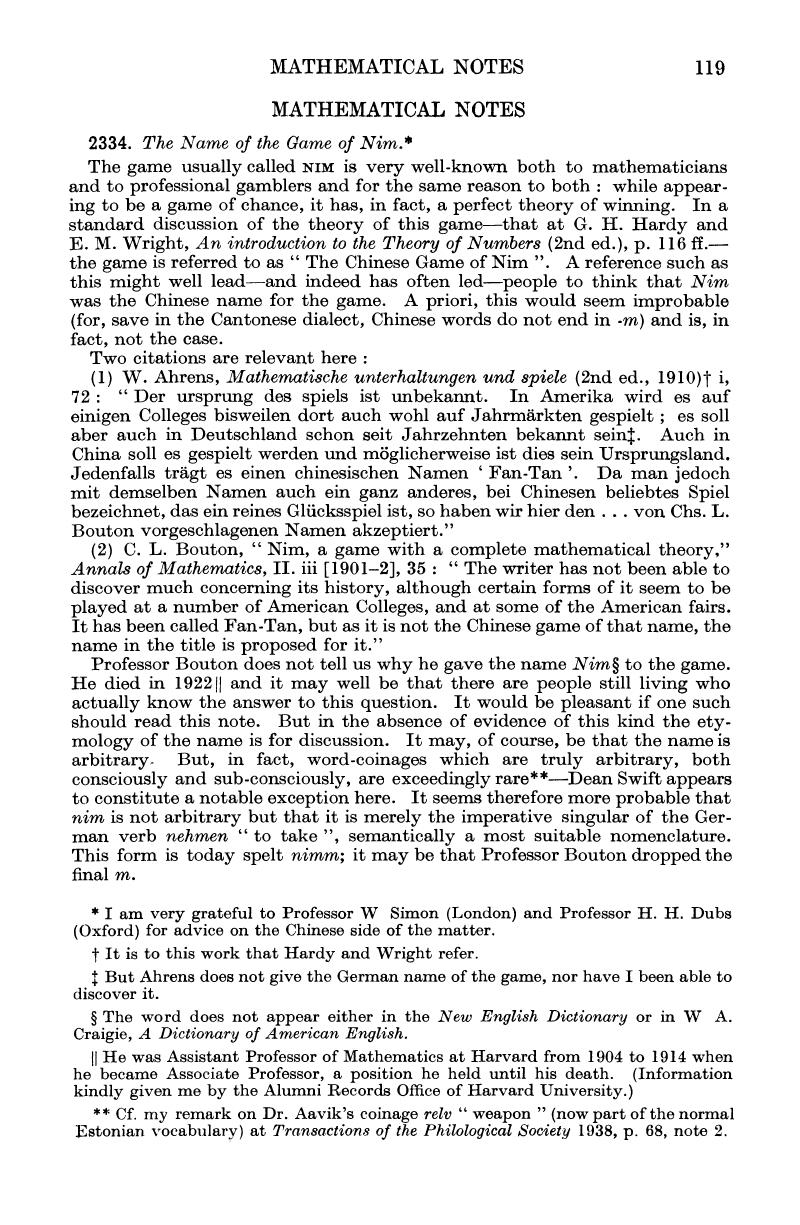Article contents
2334. The Name of the Game of Nim*
Published online by Cambridge University Press: 03 November 2016
Abstract

- Type
- Mathematical Notes
- Information
- Copyright
- Copyright © The Mathematical Association 1953
Footnotes
I am very grateful to Professor W Simon (London) and Professor H.H. Dubs (Oxford) for advice on the Chinese side of th matter.
References
page no 119 note † It is to this work Hardy and Wright refer.
page no 119 note ‡ But Ahrens does not give the German name of the game, nor have I have been able to discover it.
page no 119 note § The word does not appear either in the New English Dictionary or in W.A. Craigie, A Dictionary of American English.
page no 119 note ǁ He was Assistant Professor of Mathematics at Harvard from 1904 to 1914 when he became Associate Professor, a position he held until his death. (Information kindly given me by the Alumnli Rocords Office of HArvard University.)
page no 119 note ** Cf. my remarek on Dr. Aavik’s coinge relv “weapon” (now part of the normal Estonian vocabulary) at Transactions of the Philological Society 1938, p. 68, note 2.
page no 120 note * See H.A. Giles, A glossry of reference on subjects connected with the Far East s.v. Fantan; S. Couling, Encyclopaedia Sinica s.v. Fantan; S.Culin The Gambling games of the Chinese in America: Fán t’ák . and Pák kòp piú.
page no 120 note † This use of the name Fan-tan is not mentioned in the New English Dictionary— it may be quite recent; the game was formerly called Play or pay (a use of this phrase not mentioned in the New English Dictionary’s discussion of it s.v. Play, v.17e).
- 1
- Cited by


